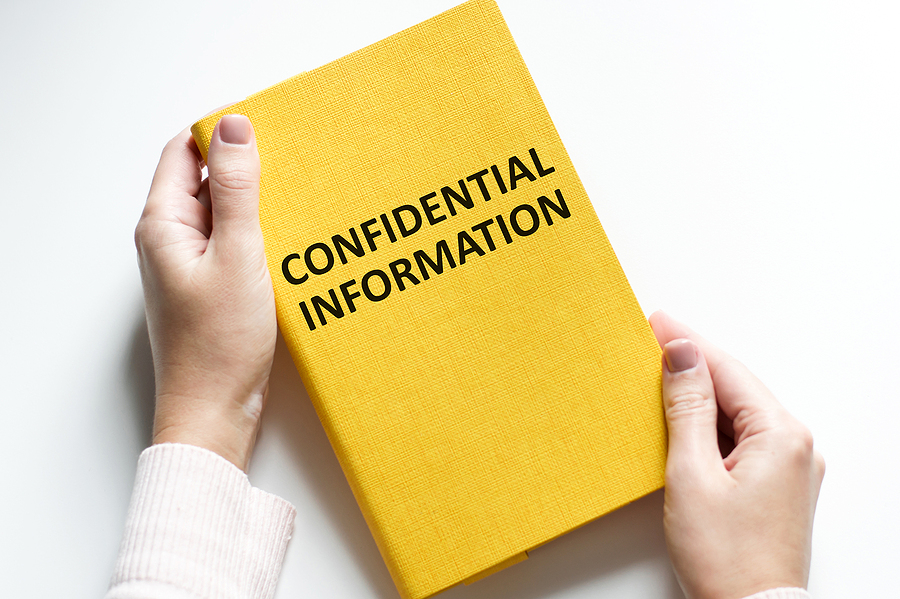In California, mediation is a popular alternative to traditional courtroom proceedings for resolving conflicts, including divorce cases. One crucial aspect of the mediation process is confidentiality. Maintaining confidentiality ensures parties can freely express their concerns, explore options, and work towards mutually agreed solutions. In this blog post, we will delve into the details of confidentiality in the mediation process under California law.
Confidentiality in Mediation
Confidentiality is a basic principle for the mediation process in California. California Evidence Code sections 703.5 and 1115–1128 outline the rules and protections regarding confidentiality in mediation. These laws aim to foster an open and honest environment where parties can work things out without fear of their statements being used against them later in court.
Confidential Communications
Pursuant to the California laws on mediation confidentiality, communications made pursuant to mediation are confidential. This means that parties, mediators, and any other parties cannot be forced to share what was said during mediation in court. This rule extends to both the content of the communications and any documents prepared specifically for mediation.
California Evidence Code section 1119 provides in particular:
(a) No evidence of anything said or any admission made for the purpose of, in the course of, or pursuant to, a mediation or a mediation consultation is admissible or subject to discovery, and disclosure of the evidence shall not be compelled, in any arbitration, administrative adjudication, civil action, or other noncriminal proceeding in which, pursuant to law, testimony can be compelled to be given.
(b) No writing, as defined in Section 250, that is prepared for the purpose of, in the course of, or pursuant to, a mediation or a mediation consultation, is admissible or subject to discovery, and disclosure of the writing shall not be compelled, in any arbitration, administrative adjudication, civil action, or other noncriminal proceeding in which, pursuant to law, testimony can be compelled to be given.
(c) All communications, negotiations, or settlement discussions by and between participants in the course of a mediation or a mediation consultation shall remain confidential.
California Evidence Code Section 1119
Exceptions to California Mediation Confidentiality
While mediation is generally confidential, there are a few exceptions where information shared during mediation may be admissible in court. These exceptions include situations involving threats of harm or criminal acts, child abuse, and certain financial crimes. Additionally, if all parties –including the mediator– agree in writing, they can waive the confidentiality. (See California Evidence Code Section 1122.)
Evidence Code Section 1120 specifically spells out the following circumstances when the confidentiality does not apply:
- Evidence otherwise admissible in court or subject to discovery is not excluded simply because it was brought up during mediation.
- An agreement to mediate is admissible.
- An agreement not to take a default or an agreement to extend time is not confidential.
- The mere fact a particular mediator is serving on a case is not confidential.
- The family law declarations of disclosure required in every divorce case by Family Code sections Sections 2104 and 2105 are admissible, even if the parties prepared them during mediation.
(California Evidence Code Section 1120.)
Benefits of Confidentiality
Confidentiality in California mediation processes offers several benefits to the parties involved:
- Open Communication: Confidentiality encourages open and honest communication between the parties. It allows them to express their concerns, feelings, and interests without fear of their words being used against them later.
- Privacy: Mediation provides a private and confidential setting to discuss sensitive information without becoming public record. This confidentiality protects personal and financial matters from unnecessary exposure.
- Preserving Relationships: Confidentiality allows parties to work collaboratively towards resolving their issues. By safeguarding private information, it helps maintain trust and respect, increasing the likelihood of preserving relationships, especially in family law cases.
- Creative Problem-Solving: Parties can freely explore various options and potential solutions during mediation, knowing that their ideas and proposals will remain confidential. This freedom fosters creativity and facilitates a more comprehensive resolution of the dispute.
Conclusion
Confidentiality is a crucial aspect of the mediation process under California law. It creates a safe space for open communication, protects privacy, and supports the development of mutually agreed solutions. It’s important for all involved parties to understand the rules and exceptions regarding confidentiality in mediation. By ensuring confidentiality, mediation provides a valuable alternative to traditional litigation, promoting better results for those seeking resolution in California’s legal system.
Further Reading:

